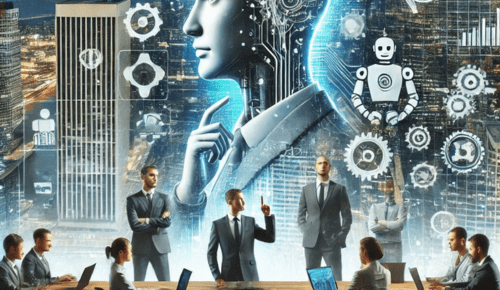
What is ChatGPT
In the evolving landscape of artificial intelligence, Generative AI (GenAI) stands out for its remarkable capabilities to create content, automate tasks, and even simulate human-like conversations. As businesses continue to integrate GenAI into their workflows, a pressing question emerges: How will this technology impact critical thinking in the workplace?
Related: What is ChatGPT?
Enhancing Critical Thinking Through Automation
One of the most significant ways GenAI can impact critical thinking is by automating routine and mundane tasks. This automation frees up time and cognitive resources for employees to focus on more complex and strategic aspects of their roles. Instead of spending hours on data entry, report generation, or basic customer service queries, workers can now dedicate their mental energy to problem-solving, decision-making, and innovative thinking.
By handling the repetitive tasks, GenAI allows employees to engage more deeply with their work, fostering an environment where critical thinking can thrive. Employees can analyze data trends, develop strategic initiatives, and tackle complex problems that require a nuanced approach—tasks that are inherently human and necessitate a high level of critical thinking.
Augmenting Human Intelligence
GenAI serves as a powerful tool for augmenting human intelligence. With its ability to process and analyze vast amounts of data, GenAI can provide insights that may not be immediately apparent to human analysts. For example, in the fields of marketing and finance, GenAI can identify patterns and correlations within data sets that inform better decision-making processes.
By providing these insights, GenAI acts as a catalyst for critical thinking. It equips employees with the information they need to ask the right questions, challenge assumptions, and explore alternative solutions. In this way, GenAI does not replace human intelligence but rather enhances it, enabling workers to think more critically and creatively.
Encouraging Continuous Learning and Adaptation
The integration of GenAI in the workplace necessitates a continuous learning mindset. As AI technologies evolve, employees must adapt and update their skills to leverage these tools effectively. This ongoing learning process inherently fosters critical thinking as employees must evaluate new information, understand its implications, and apply it in their work contexts.
Moreover, the dynamic nature of GenAI requires workers to be flexible and adaptive. They must constantly reassess their strategies and approaches considering new AI capabilities and insights. This adaptability is a core component of critical thinking, as it involves the ability to adjust one’s thinking, and actions based on changing circumstances.
Potential Challenges and Mitigation Strategies
Despite the myriad of benefits, the integration of GenAI also presents potential challenges to critical thinking in the workplace. One concern is the risk of over-reliance on AI-generated insights, which could lead to a decline in human analytical skills. To mitigate this risk, it is crucial to maintain a balanced approach where AI serves as a supportive tool rather than the sole decision-maker.
Another challenge is ensuring that employees possess the necessary skills to interpret and utilize AI insights effectively. This requires comprehensive training programs that focus not only on the technical aspects of GenAI but also on enhancing critical thinking skills. Encouraging a culture of curiosity and questioning can also help employees remain engaged and thoughtful in their interactions with AI tools.
Conclusion
Generative AI holds tremendous potential to transform the workplace by enhancing critical thinking among employees. By automating routine tasks, augmenting human intelligence, and fostering continuous learning, GenAI creates an environment where critical thinking can flourish. However, it is essential to address the challenges associated with AI integration to ensure that the workforce remains equipped to think critically and adapt to an ever-changing technological landscape. As we move forward, the symbiotic relationship between GenAI and human intelligence will be crucial in driving innovation and success in the workplace.







